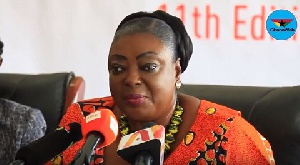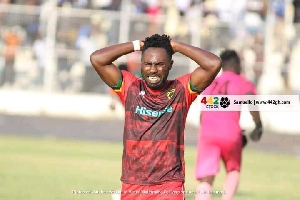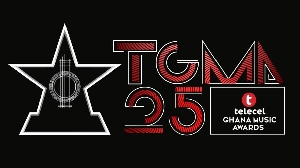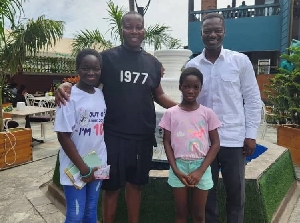General News of Wednesday, 17 July 2019
Source: www.ghanaweb.com
Tap into free SHS; human trafficking is real – Deputy Gender Minister advises youth
As part of government’s efforts to eradicate human trafficking and its related crimes, the Deputy Gender Minister has admonished the youth to tap into benefits of the free Senior High School policy and flee from deceitful persons who promise greener pastures off the shores of the country.
The Free SHS policy which is one of the main flagship programmes of the Nana Addo Dankwa Akufo-Addo government was introduced in 2017 and promises free, equal and fair secondary cycle education.
Speaking at the World Day against Trafficking in Persons – Blue Day Commemoration gathering at Agbogbloshie market, Wednesday, July 17, 2019, Freda Prempeh warned residents particularly young people and parents to desist from interacting with recruiting agencies and individuals who offer jobs and education opportunities abroad.
Human trafficking, modern-day slavery are few of the main massive worldwide problems with very few solutions.
Mrs. Prempeh emphasized that “…now the traffickers have migrated from just trafficking people across our borders to go and sell, now they’ve even gone beyond to sell human parts. So we want to sensitize people, bring to the fore, we want to create more awareness that human trafficking is there…our future leaders are dying.”
She reminded them that by the provision of the Human Trafficking Act, 2005, human trafficking and its related acts are illegal and persons caught will face a minimum of 5 years and maximum, 25 years prison term.
According to her, there are no greener pastures for young people off the shores of the country thus, taking advantage of the free SHS initiative may be the best option.
“..There’s nothing there for anybody…now free Senior High School is here so if your parents are saying they can’t take you to school, there’s free Senior High School you can tap into it and go back to school...we’re here to sensitize the vulnerable ones that there are no greener pastures anywhere...”
She emphasized that government is putting up “systems and structures to ensure that we curb the situation.”
In available UN reports, thousands of men, women and children end up in the hands of traffickers every year, often through being tricked and mislead to believe that they are being taken to work that will make their family better off, or through force, kidnap, or even through very poor families selling children in order to survive.
Government over the past years has made significant efforts in curbing the situation in country despite limited resources by prosecuting and convicting arrested traffickers.
Human trafficking Act in Ghana
The Human Trafficking Act (HTA), 2005, which was developed for the prevention, reduction and punishment of human trafficking for the rehabilitation and reintegration of trafficked persons, frowns on the act.
It defines human trafficking as the recruitment, transportation, transfer, harbouring, trading or receipt of persons within and across national borders by the use of threats, force or other forms of coercion, abduction, fraud, deception, the abuse of power, among others.
Ghana prohibits all forms of trafficking through its HTA, which prescribes a minimum penalty of five years' imprisonment for all forms of trafficking.
According to the AHTU, 61 percent of all trafficking cases reported in Ghana were labour-related, while 39 percent were sexual exploitation cases.
Communities along the Volta Lake are notorious for child trafficking.
It is estimated that fishing on Lake Volta, the fourth largest reservoir in the world, accounts for 90 percent of the total inland fisheries output for Ghana, and approximately 20 percent of the nation’s total fish catch.











